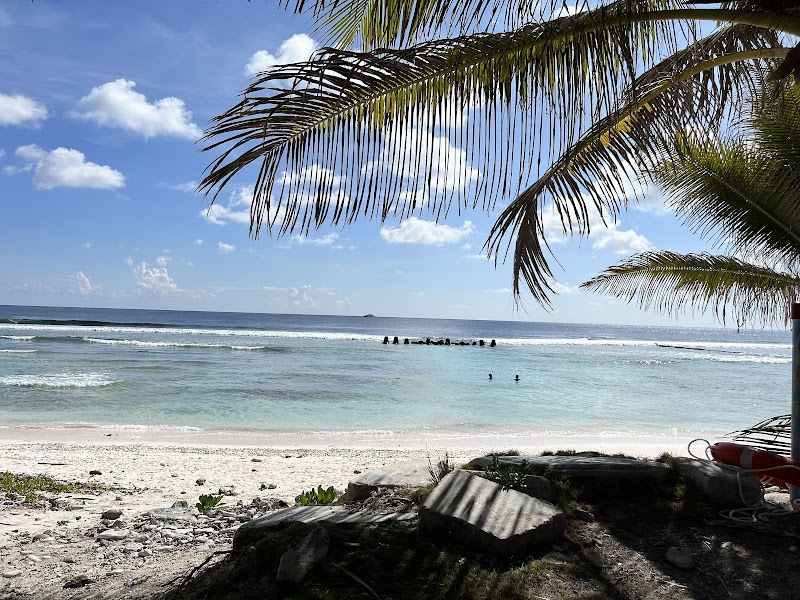
Experience the adrenaline of the Fuvahmulah Fishing Tournament, where anglers battle the powerful currents and prize-worthy game fish of this unique Maldivian island. Perfect for both avid fishermen and curious spectators, this event combines the island’s wild ocean energy with practical challenges and sustainable practices.
Choose the Right Time to Fish
The peak tournament months are November to February, offering stable weather and prime fish activity. Avoid the monsoon season when seas become unpredictable.
Hydrate Constantly
Long hours under the tropical sun and physical exertion on boats require regular water intake to maintain focus and stamina.
Use Non-Slip Footwear
Wet boat decks and fast-paced reeling demand shoes with strong grip and quick drying features to prevent slips and injuries.
Respect Catch-and-Release Rules
The tournament promotes sustainability; following these rules helps preserve fish populations and the broader marine ecosystem.
Hooked on Action: The Thrill of Fuvahmulah Fishing Tournament
When the sun rises over the Indian Ocean, Fuvahmulah, Maldives, pulses with a unique kind of energy—the rush and roar of the Fuvahmulah Fishing Tournament. This event transforms the island from a quiet haven into a bustling hub for anglers and adventurers alike, all chasing the island’s famed big game fish. Unlike the typical Maldivian atoll scene, Fuvahmulah stands alone, a single island with deep blue waters darting with marlins, tuna, and giant trevally that dare you to match their speed and strength.
The tournament stretches over several days, bringing local fishermen and international contenders into a friendly but fiercely competitive arena. Anglers face the challenge of reading the ocean’s temperament, battling currents that push and pull like fierce opponents, all while managing their gear and stamina under a tropical sun. Each cast is a test of skill, patience, and respect for the wild forces at play beneath the waves.
Pragmatically, if you’re planning to join or watch, timing is crucial. The tournament generally occurs between November and February—when the weather is stable, and fish activity peaks near the island's deep channels. Prepare for quick shifts in wind and sun; hydration and sun protection are non-negotiable. Footwear that handles wet boat decks and swift movement keeps you agile and safe.
Beyond the competition, Fuvahmulah offers a unique landscape. The island’s rich coconut groves and scattered ponds lend a quiet contrast to the ocean’s roar. When not following the lines, participants can explore mangrove creeks or visit protected bird sanctuaries. The island’s involvement in conservation means anglers must follow strict catch-and-release practices during the tournament to protect the ecosystem that sustains these giants of the sea.
Capturing the tournament’s moments demands early mornings or golden hour light, where the thermal currents cast flickering shadows on the water. From the boat decks, the interplay between the blue sky and deep sea offers excellent opportunities for dramatic photos—whether it’s a hooked marlin making its acrobatic escape or the focused expressions of fishermen locked in battle.
Engaging with the Fuvahmulah Fishing Tournament is more than a sport; it’s a dynamic encounter with an ocean fiercely alive, rich in challenge and reward. Adventurers looking to test their skills will find motivation in every tug on the line, but also a clear call to respect the marine world as it asserts itself with power and grace. This isn’t just a tournament; it’s an invitation to measure yourself against the relentless pulse of nature.
Nearby Trips
All Adventures
Boat Charters
Water Activities
Adventures near Fuvahmulah, Maldives
Discover the unique and memorable adventures that make Fuvahmulah, Maldives special.
Frequently Asked Questions
What species are targeted in the Fuvahmulah Fishing Tournament?
The tournament focuses on big game fish such as sailfish, marlin, giant trevally, and yellowfin tuna, which thrive in the deep waters surrounding the island.
Are spectators allowed during the tournament?
Yes, visitors can watch from designated points on boats and shore locations, offering thrilling views of casting, hooking, and battling giant fish.
How is conservation addressed during the tournament?
Strict catch-and-release rules ensure that fish are handled carefully and released quickly to minimize stress, helping maintain healthy populations around the island.
What makes Fuvahmulah different from other Maldivian islands?
Fuvahmulah is unique as a single island without a typical atoll structure, offering deep surrounding channels and a variety of freshwater ponds and mangroves uncommon elsewhere in the Maldives.
Is previous fishing experience required to participate?
While experience helps, the tournament welcomes anglers of all skill levels, supported by local guides and experts willing to share tips and techniques.
What accommodations are available near the tournament site?
Fuvahmulah offers guesthouses and small hotels with authentic local hospitality. Many provide easy access to the tournament docks and offer gear rentals.
Recommended Gear
UV Protection Clothing
Lightweight, long-sleeved shirts and hats are essential for shielding skin from the strong tropical sun during long fishing sessions.
Non-Slip Boat Shoes
Shoes with gripping soles prevent slips on wet and rolling decks, improving safety during sudden boat movements.
Hydration Pack
Keeps water readily accessible to prevent dehydration throughout long hours on the water.
Polarized Sunglasses
Reducing glare off the water surface helps improve visibility of fish movements and ocean currents, enhancing reaction time.
Local Insights
Hidden Gems
- "Baawol Madu freshwater pond – a serene spot distinct from the ocean’s roar."
- "Daharunburudhoo Reef – a lesser-fished dive site great for spotting rare reef sharks."
Wildlife
- "Red-footed boobies and white-tailed tropicbirds that soar above the island’s cliffs."
- "Green sea turtles frequent near-shore waters, offering rare close encounters."
History
"Fuvahmulah's fishing traditions stretch back centuries, blending local Dhivehi culture with ocean stewardship that shapes the tournament’s modern sustainable practices."
